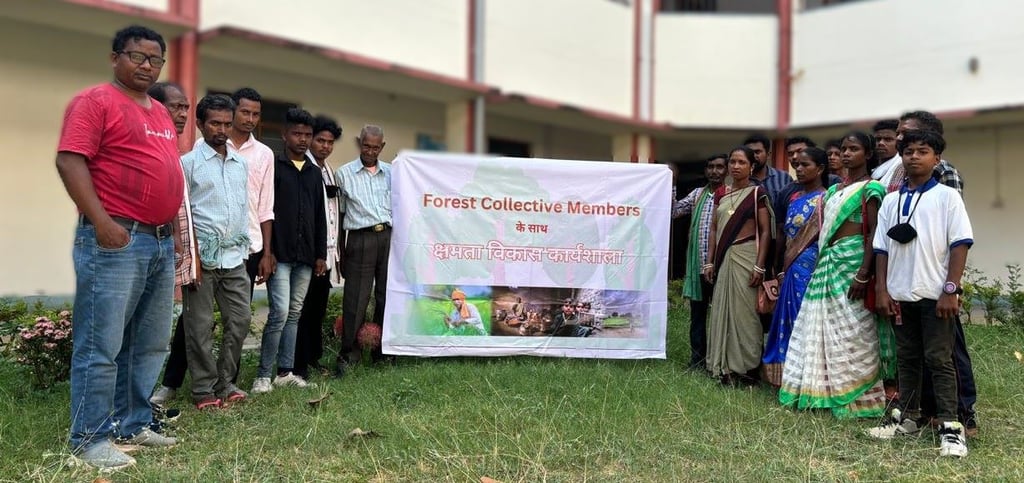Germination of the Idea of Disum Collective
Why Disum Collective had to be formed?
Roshan Horo
9/4/20242 min read
Jharkhand is a state with 26.21 per cent Adivasi population. The traditional lifestyle of the Adivasi communities is based on forest and agriculture. That is the reason why they have their habitats in forest covered areas. Or to see it other way round, forests have also survived in the areas with Adivasi dwellings. Hence, there is a symbiotic relationship between the Adivasis and nature. Nature is celebrated, worshipped and cared as it is the reason for the sustenance of life. Infact, the Adivasi people consider themselves no superior to any other element of nature.
Besides the Adivasis, in Jharkhand, there are various other communities traditionally living in coherence with nature. That means more than half the population of Jharkhand are still dependent on agriculture and forest resources. But the traditional relationship of the forest dwelling communities with the forests was disturbed by the colonial exploitations. Chasing away from the traditional forest rights continued even after independence. That is why, when the 'Scheduled Tribes and Other Traditional Forest Dwellers (Recognition of Forest Rights) Act came in 2006 it accepted the historical injustice towards these communities, and granted them the rights to govern the forests and traditional use the non-timber forest resources.
Nevertheless, the communities remain deprived of the forest rights till date. Further, with the diversion of forest and agriculture land for developmental work has left them in despair. Forced to shift their livelihood their lifestyle is undergoing a change for which they were unprepared. In the middle of the evolution from a conservative society to a consumerist society, the traditional forest-dwelling communities face a threat of the next generation losing the heritage of a age long relationship with nature. That could be a problem, not just for these communities, but for the entire world. Their lose of the knowledge to live in coherence with nature could be a lose to life. That said, they also need to grow strong socially, culturally and economically. Otherwise, they will perish in the survival of the fittest.
The communities, we are talking about, still live in abject poverty. They lack access to basic amenities. Struggling with mere hand to mouth they miss out on cultural and social development. As a result the community structure is affected bigtime. Understanding all these, the necessity for a collective initiative was realised for a collective economic growth, which eventually boost the cultural and social structures of these communities.
So far, the villagers had access to the local market or the middlemen to sell their produce, which did not provide good value for them. Selling individually also meant ununiformed rates for the produce. Therefore to access a wider market and ensure fair price collection of produce and selling them in collective quantities was identified important. At the same time, adding value to the produce could ensure better prices, on one hand, and engaging more people for a longer period on the other hand. As we see, even today, agriculture engages rural folks for six to seven months of the year, while the remaining five to six months they are engaged in gathering forest produce. Folks engaged in the agriculture and forest produce gathering can form collectives and start adding value to their products before choosing a market to sell them. A company will be formed for marketing and helping the village collectives in value addition of products.
The model of collective business was shared with the villagers and after several rounds of discussions Disum Collective was formed and officially registered under the 'Companies Act 2013'. While designing the collective enterprise a survey was conducted for the availability of forest produce in Jharkhand, its share of economic support to forest-dwelling families, potential of these products etc. to strengthen the backbone of the business. Focussed Group Discussions were also held to take understand the perspective of the community. And finally the Disum Collective Private Limited came into existence. It is only the beginning. We have to walk a long mile, collectively.


